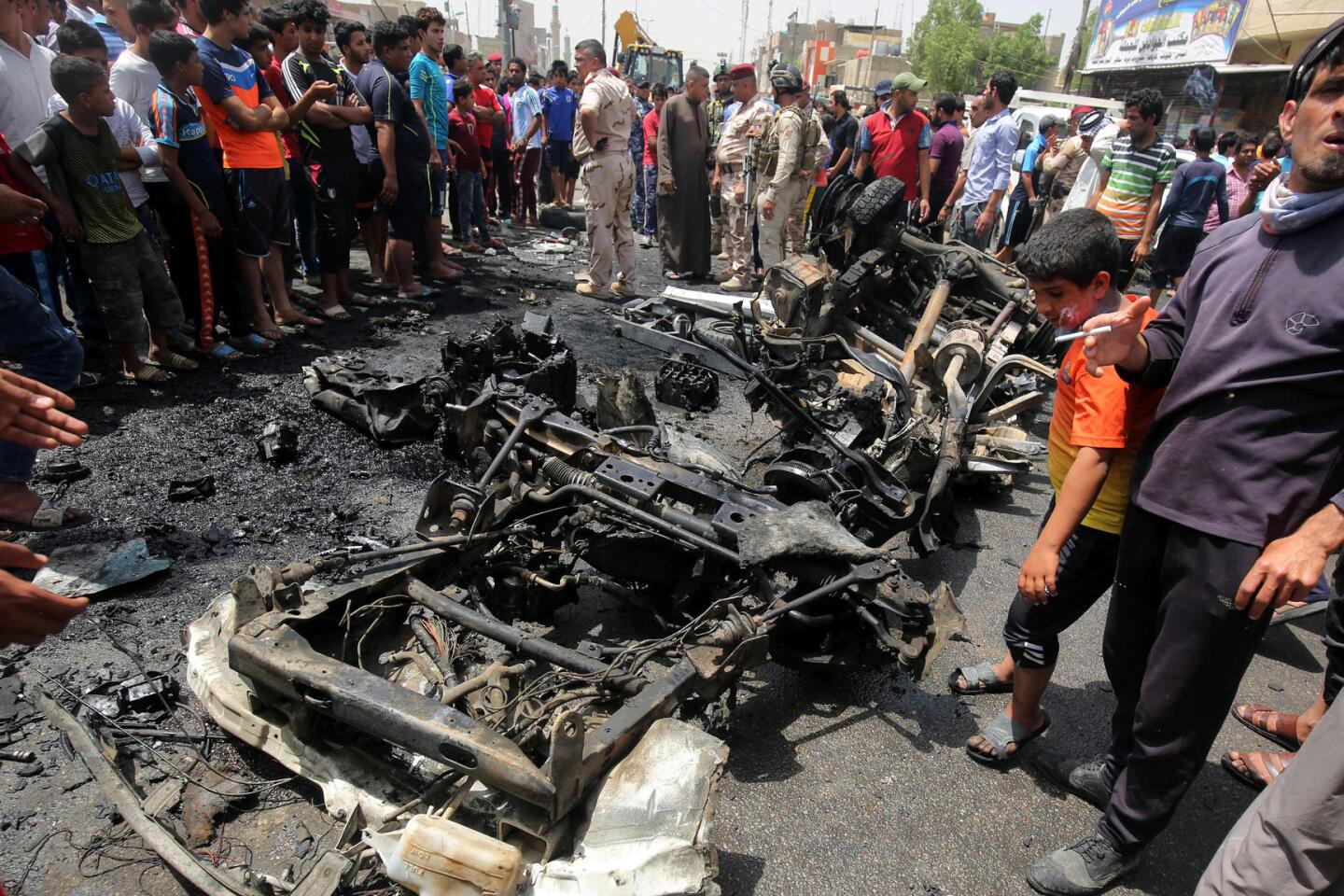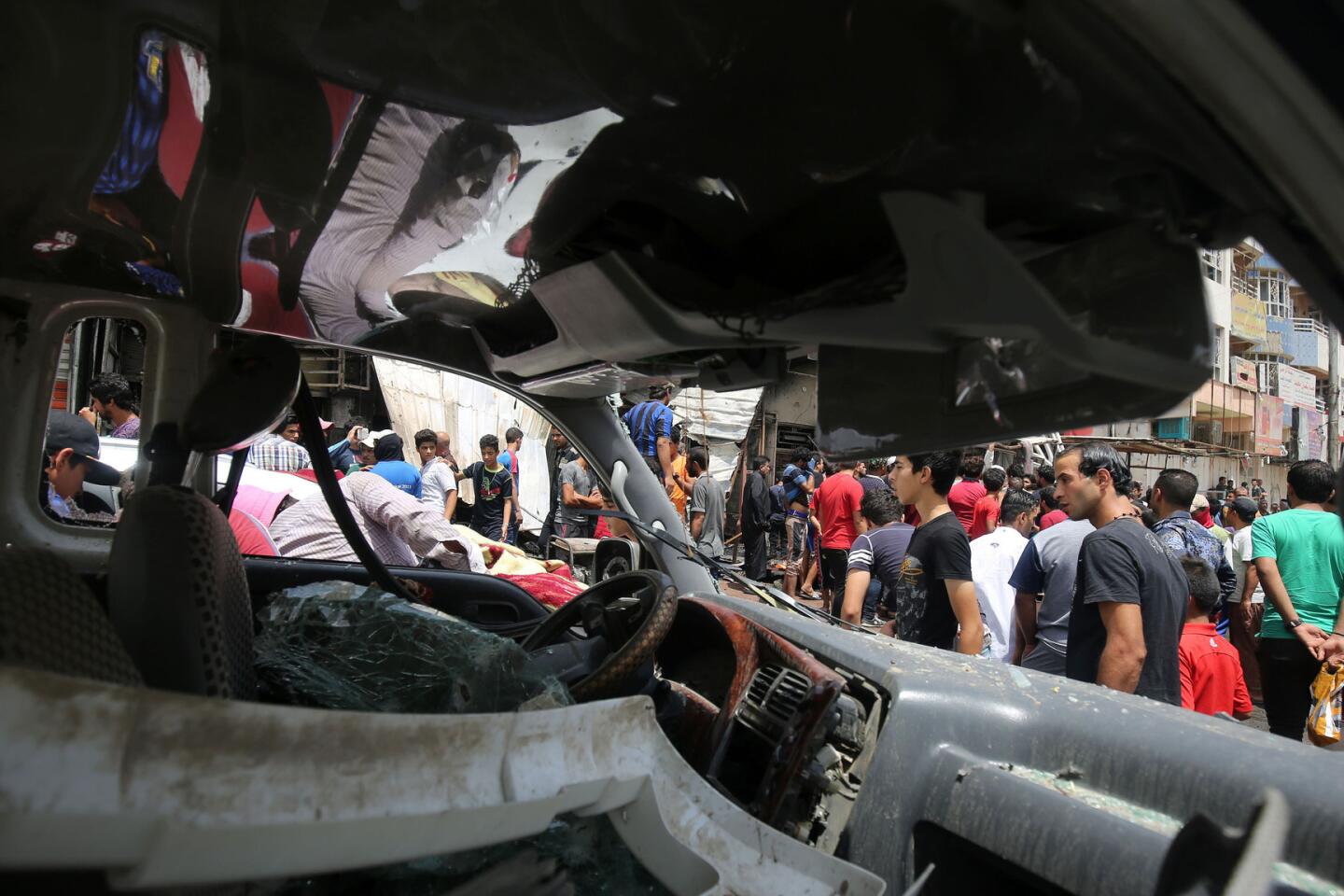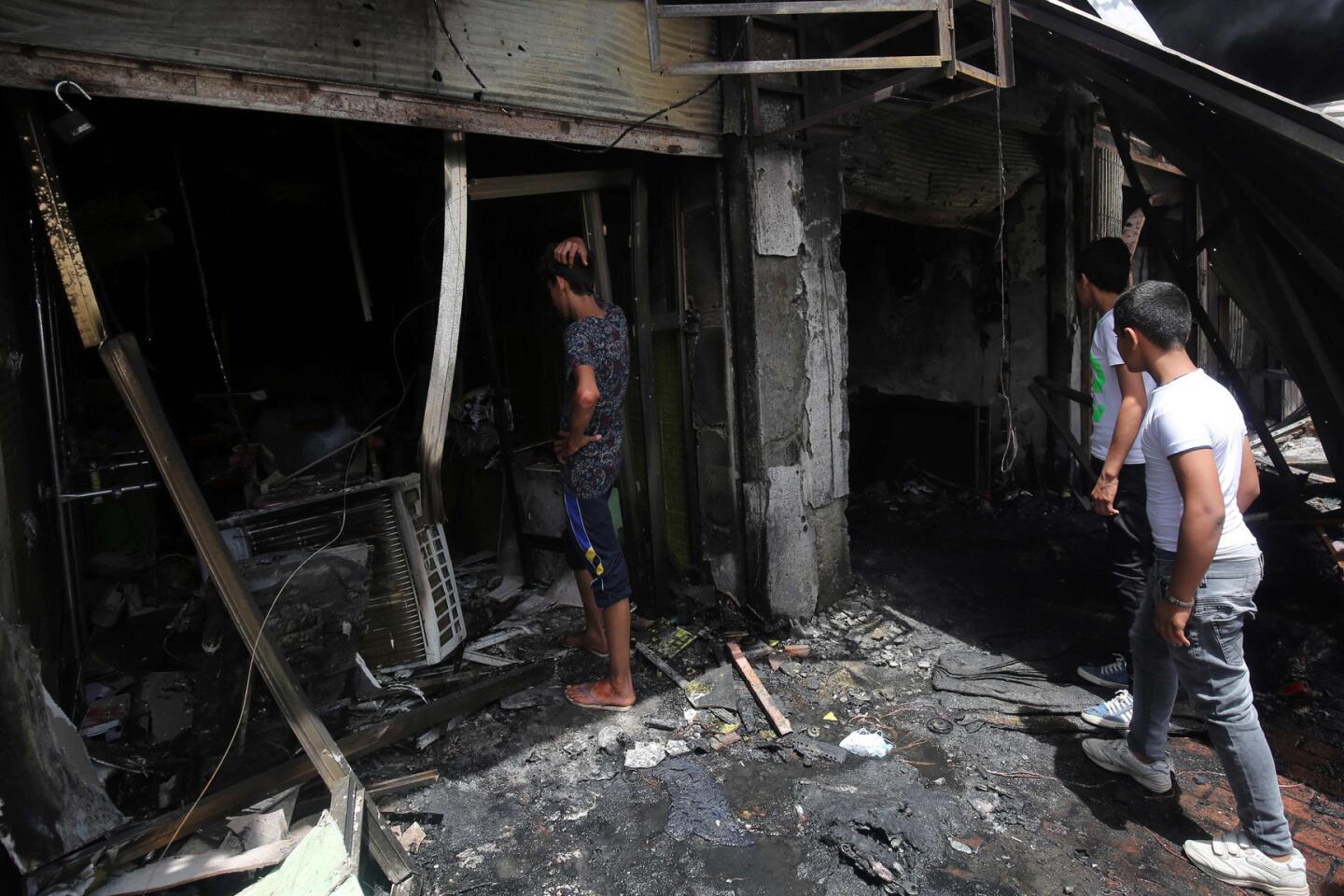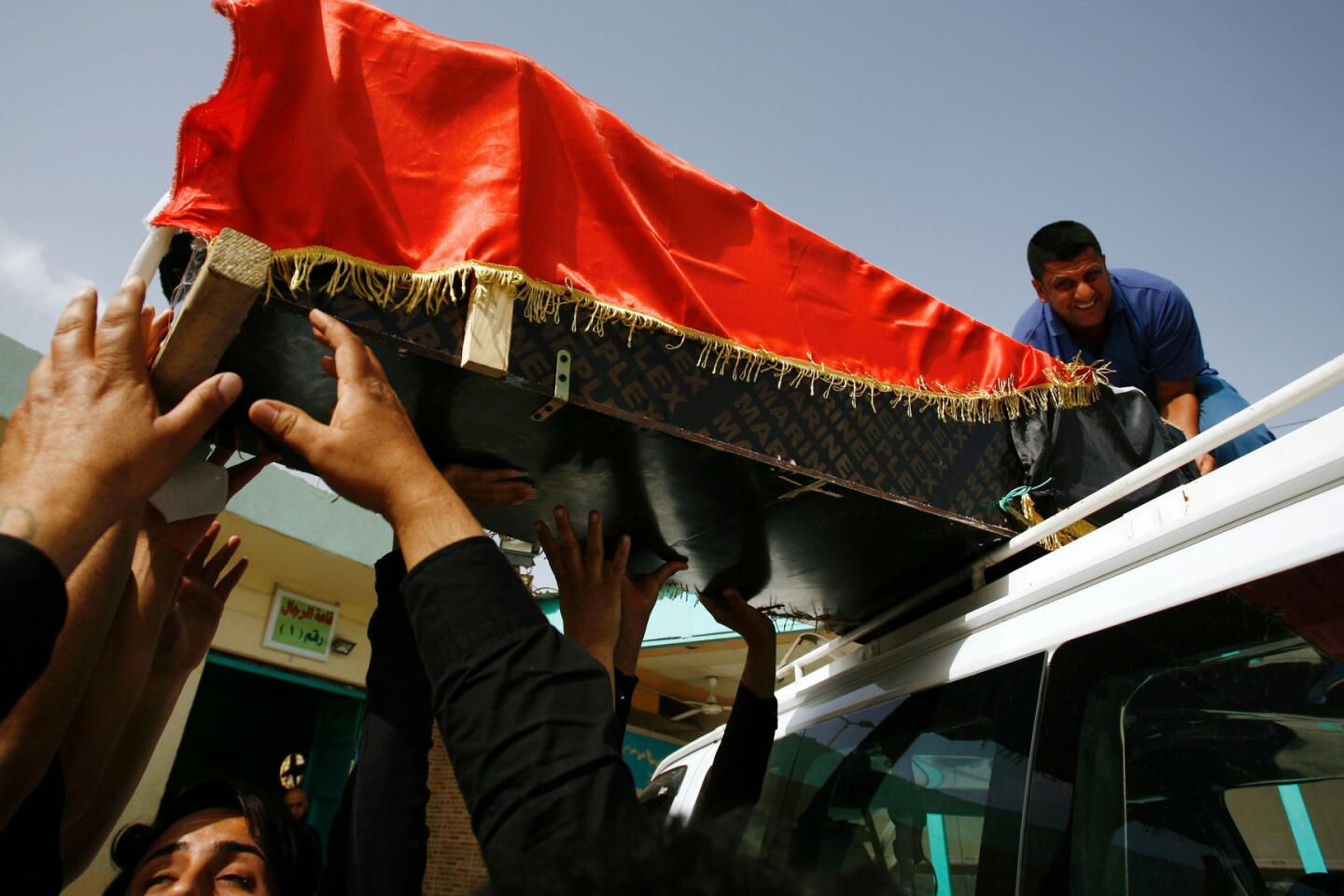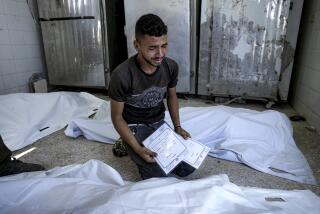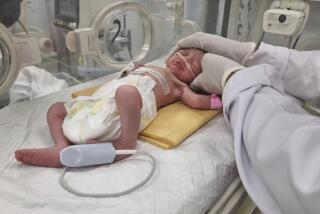A grandfather’s grief on the bloodiest day Baghdad has seen in months
- Share via
reporting from baghdad — For members of the Ali family, Wednesday was the day they lost 6-year-old Yaqeen in a bomb blast in the Iraqi capital.
She was among those who died when a bomb in a pickup truck detonated at an outdoor market in Baghdad’s Sadr City district, killing at least 63 people and injuring at least 85.
“We looked for her after the blast, but we couldn’t find her anywhere,” said Hussein Ali, Yaqeen’s grandfather, as he showed a creased picture of a little girl wearing dark blue leotards over white stockings. “She had gone to buy biscuits or something from the market.”
Around him, the men of the family sat on the sidewalk, their demeanor lethargic and eyes red from grief.
“We were going to go register her for school,” Ali said, his voice a steady monotone.
A moment passed before one man broke down and began to sob. Others soon joined in.
Two other car bombings in the capital on Wednesday raised the total number of casualties to at least 93 dead and 165 injured, according to officials and media reports. A bombing at a police station in the Kadhimiya neighborhood reportedly killed at least 18 people and injured 34, while a bombing in the Jamiya neighborhood killed 12 and injured 46.
The extremist group Islamic State claimed responsibility for all three bombings.
But some angry residents said they believed government officials allowed the attack in response to antigovernment protests spearheaded by anti-U.S. leader Muqtada Sadr, the Shiite Muslim cleric who heads the Mahdi Army militia.
Last month, thousands of Sadr supporters overran the capital’s heavily fortified Green Zone, beating up lawmakers and threatening to bring down the government unless Prime Minister Haider Abadi could deliver a so-called technocratic Cabinet — one not based on a quota system drawing from Iraq’s squabbling parties and sects.
“Sadr City rose up against the corrupt of our parliament, and that’s why the bombing happened!” screamed Kathem Abdullah, a 34-year-old worker.
Abdullah said that checkpoints leading into Sadr City were not equipped with proper bomb-detecting equipment, and that the area had been intentionally neglected by the police.
“The corrupt politicians delivered a message to us today, but we tell them that we are continuing with our fight led by our leader,” he said. “We want a government that doesn’t rely on quotas.”
Islamic State, which adheres to a strict interpretation of Sunni Islam, views Shiites as apostates who must be killed. It continues to hold sway over large parts of the country, including Iraq’s second largest city, Mosul, 225 miles northwest of Baghdad.
Pro-government forces backed by hundreds of airstrikes by the U.S.-led coalition this year pounded their way into Ramadi, the capital of Sunni-dominated Anbar province, the militant group’s main support base in the country.
The group said on social media Wednesday that the first attacker had targeted a “large gathering” of pro-government paramilitary groups that are collectively known as the Popular Mobilization Forces.
Residents, however, said those killed were civilians, many of them women waiting to collect their husbands’ salaries from a money order store near where the bomb had struck.
“The government announced yesterday it would deposit salaries today so they were all standing in line or sitting on the benches in front of the store,” said Mohammad Hussein, the owner of a clothes factory in the same building.
He had been driving away in his car, Hussein continued, when the explosion happened. He left his car and ran back to check on his workers; they suffered only injuries, saved by the concrete wall of his factory.
“It was a huge bomb, and the bomber had put ammunition in the back of the pickup. That’s why you see all these bullet holes around us,” he said.
A group approached from an alley adjacent to the burned building, chanting, “There is no god but God” as a bus with a simple wooden coffin on top inched its way down the street. The crowd in the street coalesced around the bus and joined the chanting, as women inside cried and beat the windows and seats with their fists. It would soon be in the Shiite holy city of Najaf, 90 miles south of Baghdad and the site of the world’s largest burial ground.
“Things will never change here,” Hussein said when the bus had gone out of sight. “It will always be like this.”
Bulos is a special correspondent.
ALSO
What’s behind the sharp decline in lone-wolf stabbing attacks in the West Bank
Kidnapped son of former Pakistani leader is rescued by U.S. and Afghan forces
Islamic State claims responsibility for deaths of 8 police officers in Cairo suburb
More to Read
Sign up for Essential California
The most important California stories and recommendations in your inbox every morning.
You may occasionally receive promotional content from the Los Angeles Times.
